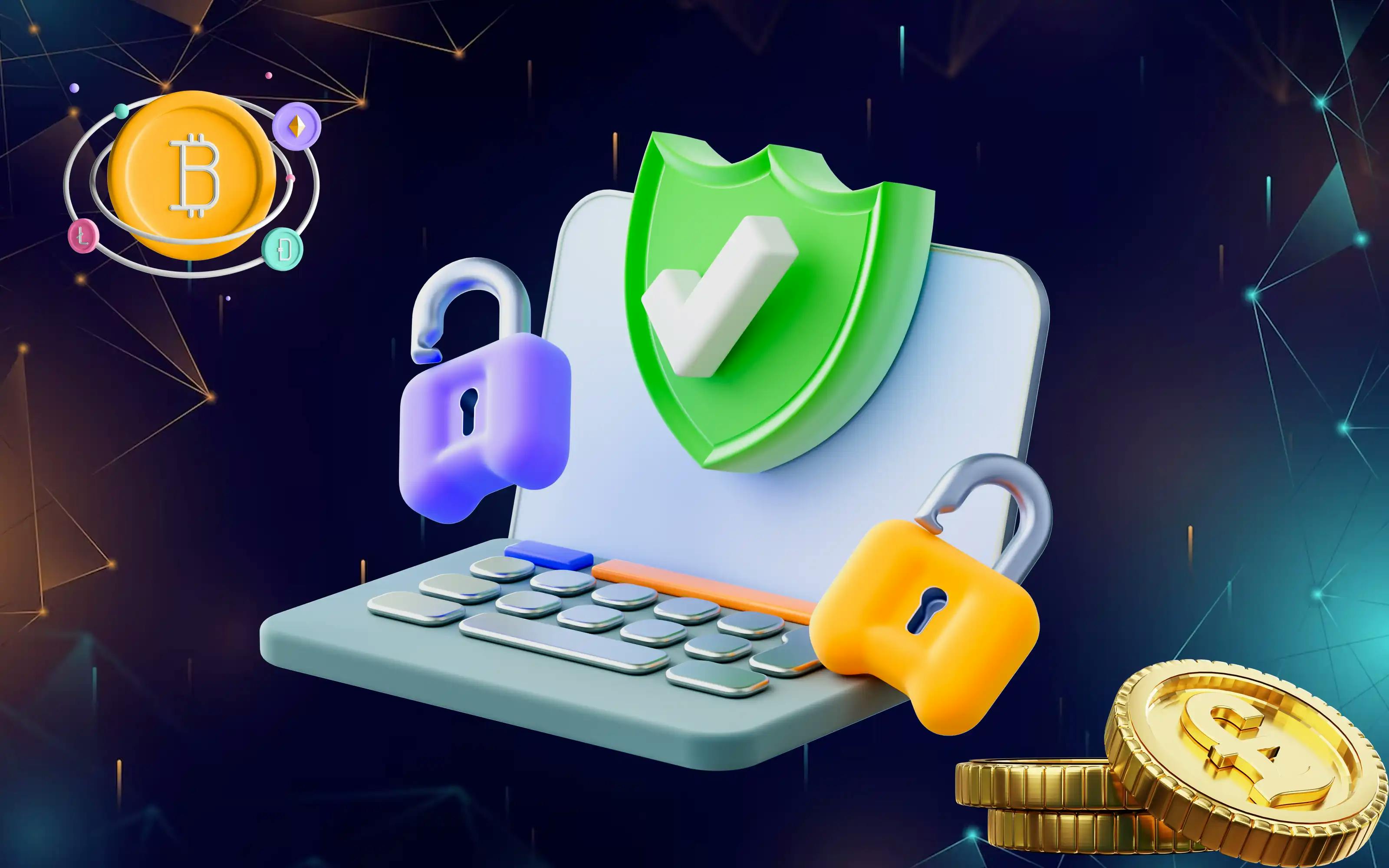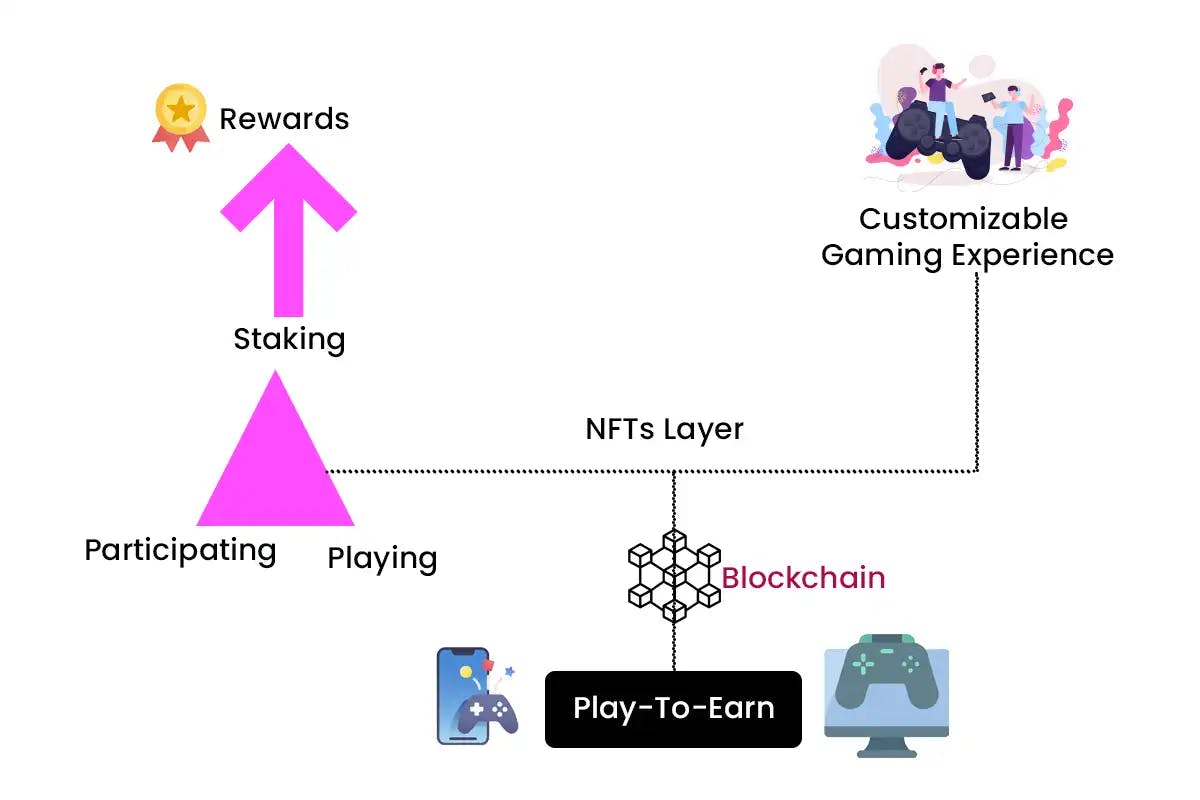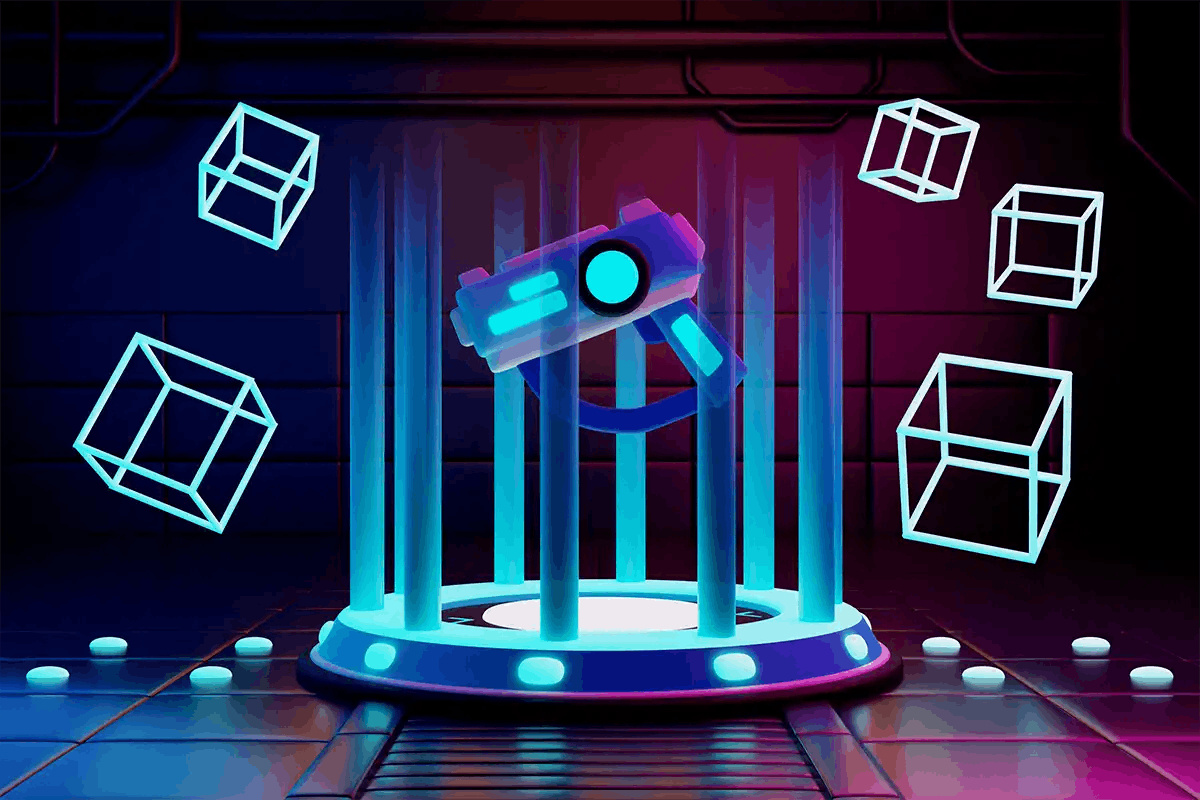
Gen Z and Play to Earn Blockchain Games
The gaming industry has recently seen a revolutionary transition with the emergence of Play-to-Earn Blockchain Games. The concept of “Play-to-earn” has attracted the interest of both developers and players.
Play-to-Earn is basically a gaming environment in which the players can participate, and the winner receives tangible rewards in the form of cryptocurrencies or non-fungible tokens (NFTs).
The development of blockchain technology has driven this gaming revolution which brings decentralization, transparency, and immutability to gaming ecosystems. The incorporation of blockchain enables player-driven economies, proven scarcity through NFTs, and safe in-game asset ownership.

Another significant driving force behind the emergence of Play-to-Earn games is the passionate involvement of Generation Z, a tech-savvy generation that craves entertainment experiences paired with the possibility of financial empowerment.
Moreover, the future of the gaming business is being shaped by the convergence of Play-to-Earn games, blockchain technology, and Generation Z’s preferences. In this blog, we will also look at how this convergence opens up new opportunities for gamers and developers.
So let’s get started.
Understanding Play-to-Earn Gaming
Play-to-Earn is based on blockchain technology, a decentralized, open ledger that securely certifies in-game transactions. Non-fungible tokens (NFTs) act as unique digital assets allowing participants to own, trade, and monetize their virtual possessions. Whereas cryptocurrencies like Ethereum, Solana act as a method of exchange where players can turn their in-game achievements into real money by exchanging them for native tokens.
The players of blockchain-based games have a reason to participate, as they can earn real income from their gaming skills. This encourages a more engaged and enthusiastic player community. The concept of a Play-to-Earn blockchain game increases player retention for developers because the possibility of earning encourages continued participation in the game.
In the world of play-to-earn games, “Axie Infinity,” “Decentraland,” and “CryptoKitties” stand out as extraordinary success stories. This phenomenon is transforming the gaming market and ushering in a new era of engaging and rewarding gaming experiences.
In the following sections, we will delve deeper into Generation Z, a brand-new generation of gamers.
Generation Z: A New Era of Gamers
Generation Z, who are raised in the digital era, sees gaming as an integral part of their identity. They seek out games that give meaningful connections and social interactions and resonate with their wide range of interests. Plus, they enjoy engaging and immersive experiences.
The shift from traditional gaming to blockchain-based games is a clear example of Generation Z’s influence. They are drawn to blockchain technology because of its decentralized structure and transparency, which satisfies their need for ownership and control over their digital assets. It nicely fits with their choice for experiences that deliver real benefits.
The transition towards Play-to-Earn blockchain games is not only a change in gaming patterns but also a reflection of attitude toward ownership and the digital world, with Generation Z at the forefront of this gaming revolution.
Unlike previous generations, Generation Z regards digital assets with a high sense of ownership and value. They understand the potential of virtual possessions, such as NFTs as investments and status symbols. This mentality of Gen Z has motivated them to adopt blockchain gaming.
The Advantages of Blockchain Gaming for Generation Z
The Play-to-Earn blockchain gaming revolution is having a big positive impact on Generation Z, dramatically altering their gaming experiences. So, let us check out some of its advantages.
1. Financial empowerment and Opportunities for income generation
The games in blockchain can turn Generation Z’s gaming passion into a profitable income stream. Players can gain real-world value through cryptocurrency and game assets through Play-to-Earn methods. This provides a sense of independence and the possibility of financial independence.
2. Inclusivity and accessibility in blockchain games
Blockchain gaming defies the conventional limitations that frequently prevent players from participating. Generation Z can play these games anywhere, regardless of their social situation or cultural upbringing. Blockchain’s decentralized structure creates a level playing field for players from all backgrounds, fostering a more diversified gaming ecosystem.
Building Virtual Economies
The underlying technology of blockchain makes it possible to build player-controlled virtual economies. Players control and own their in-game assets in Play-to-Earn games as distinct NFTs that are open to unrestricted trade and monetization. Players actively contribute to and affect the game’s developing economy, which develops a sense of pride and value.
Thus, by blockchain gaming, Generation Z is changing gaming standards, opening up new opportunities for financial gain, and reshaping the industry for this dynamic generation. Decisions in the Game can be made using DAO (Decentralised autonomous organization) e.g. There is new feature list that can be given for voting on DAO using blockchain technology and active players in-game have to verify their ownership in the Game using their NFTs and they can vote on which features they want in Game first, this way it’s more of ownership in the game can be given to the players too.
Future of Play-to-Earn and Its Impact on the Gaming Industry
Play-to-Earn gaming appears to have a bright future and is on track to profoundly transform the gaming industry.
Predictions for the growth of Play-to-Earn gaming
Play-to-Earn gaming is anticipated to increase rapidly as blockchain technology and NFTs become more widely used. A large audience will be drawn in by the possibility of earning real-world benefits, increasing the popularity and growth of this gaming paradigm.
How traditional game developers are embracing blockchain technology
Traditional game creators are increasingly incorporating blockchain technology into their games as they become more aware of the potential of Play-to-Earn. This shift will increase player engagement and diversify revenue sources as players will acquire more control over their in-game assets and experiences.
Potential disruptions to the gaming industry and legacy models
The growth of Play-to-Earn blockchain games threatens to upend established business structures in the gaming sector. Innovative methods of game development and monetization may emerge as a result of the challenges posed by decentralized economies, player-driven markets, and the idea of actual asset ownership.
Overall, Play-to-Earn gaming is expected to significantly impact the industry, ushering in a new era of gaming experiences that empower players and redefine conventional gaming standards.
Limitations to Overcome
Blockchain gaming has its own Limitations and it is overcoming them fast with the current development happening on cross-chain protocols and gasless transactions.
The use of Blockchain Technology needs to be made more user-friendly, as of now the current stage of blockchain-based gaming is still Wallet connection required and such Web3 native things, so once that improvement is implemented, then it’s more of easy to adopt.
Though it’s more of evolving Technology, more efforts are required to adopt it by the Gaming industry as there are clear advantages over traditional games.
Conclusion
The emergence of Play-to-Earn blockchain games brings a massive shift to the gaming industry, making it increasingly important to collaborate with a reputable and innovative technology provider. Codiste, a leading AI and blockchain game development company, is at the forefront of this gaming revolution. Codiste always tries to introduce a top-notch gaming experience to its users by meeting the changing demands of the gaming industry. The talented developers and experts of the team are committed to providing engaging gaming experiences that let users easily monetize their skills and abilities.
So let us together transform the gaming industry with Play-to-Earn blockchain games.





